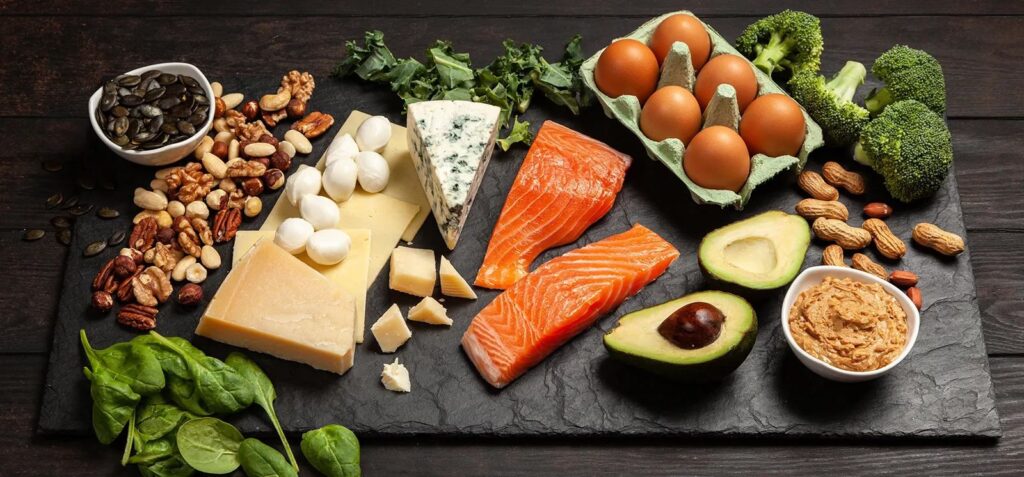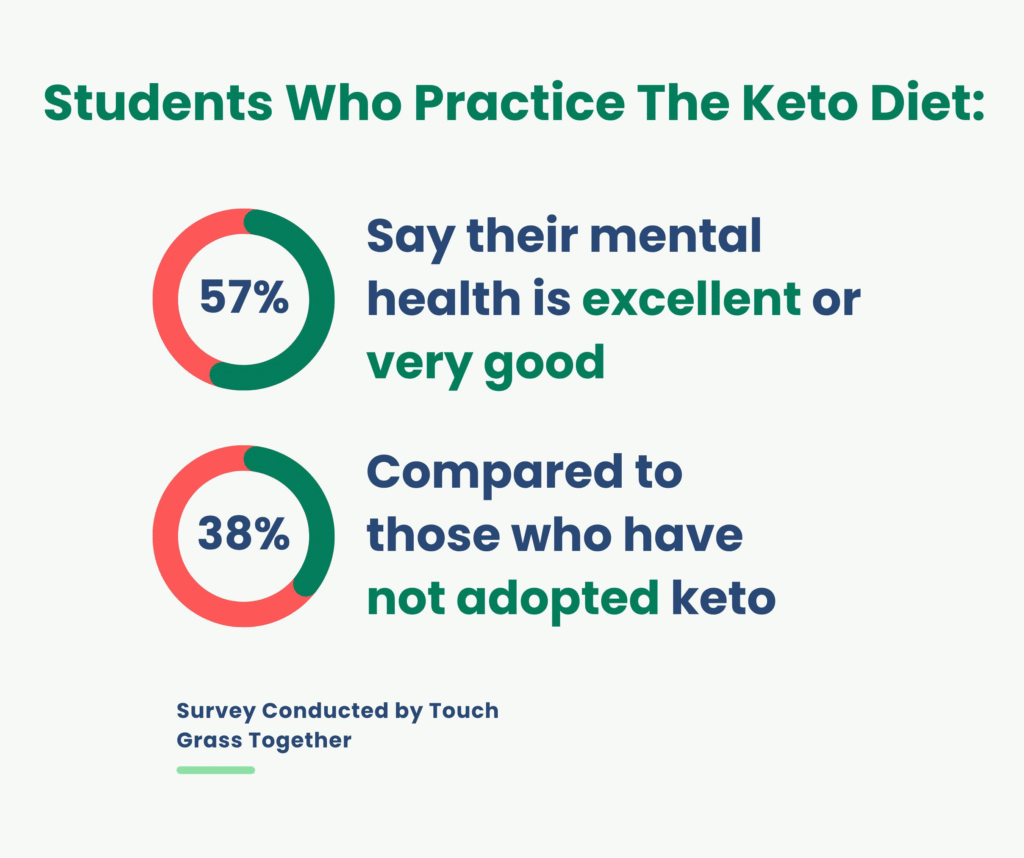On campuses across the country, college students aren’t pointing fingers at alcohol or drugs as the most significant health threat in their lives. According to a new national poll, the real crisis may be happening three times a day via what’s on their plates.
The survey, conducted by Echelon Insights for Touch Grass Together, a fast-growing student-led cultural health organization, shows 82% of students say poor nutrition is a problem on campus, outpacing concerns about substance abuse. And the data reveals something deeper: students see food as a significant contributor to their mental health.
Nearly 90% of students say they’re actively trying to prioritize their well-being, but 72% say their campuses fail to provide adequate healthy options.
Many students say that even when they try to make better choices, the environment feels stacked against them. Dining halls offer too much ultra-processed food, which is more likely to make students feel sluggish, unwell, or down. And less than half say they can get food they consider healthy at the dining hall.“Young people are tired of being flooded with junk food,” said Adnan Alkhalili, Founder and CEO of Touch Grass Together. “For college students, it’s even worse: we’re not choosing this. We want to eat in ways that support our bodies, but the campus environment makes that almost impossible.”

Diet Is Becoming a Mental-Health Tool
A large majority of students now recognize that what they eat affects nearly every part of campus life:
- Energy (84%)
- Mood (80%)
- Focus and productivity (75%)
Almost eight in ten say ultra-processed meals leave them feeling sluggish or low energy – a pattern that has only intensified as academic pressures grow. Students describe a cycle in which poor eating habits fuel stress and exhaustion, which then push them toward even more convenient, low-quality foods.
When it comes to who can help undergrads take action in improving how they feel, the majority of students say it’s family (57%) and friends (51%). Only 16% feel that celebrities, athletes, or other famous people can have this impact. The only influence ranking lower than famous people is national PSAs or campaigns for mental health and/or healthy eating (13%).

The Keto/Mental Health Breakthrough
One of the survey’s standout findings: students who have followed a keto or low-carb diet this school year report dramatically better mental health.
- 57% of low-carb adopters say their mental health is excellent or very good
- Compared to just 38% of non-adopters
Yet, more than a third of students say their schools offer too few low-carb or ketogenic options. This makes it challenging to sustain routines that may improve mental well-being.
More Than Food: Students Say Campus Life Is Out of Rhythm
Nutrition isn’t the only thing out of balance. The poll also shows students are struggling with:
- Too little time outdoors
- Near-constant screen exposure
- Chronic lack of sleep
That’s where Touch Grass Together comes in. Founded by students and young leaders, the movement mobilizes campuses, creators, and communities across the United States and abroad to restore human rhythm through light, movement, nourishment, and connection.
Alkhalili continued, “The lack of access to healthy eating and other human fundamentals on college campuses is why thousands have joined our movement to ‘touch grass together.’ Young people know exactly where society is failing them, and we’re making the noise required to change it.”
Kristen Soltis Anderson, Founding Partner, Echelon Insights, added, “Students today are trying to live healthier lives, but worry that time, cost, and lack of access to healthy food make that goal harder to achieve. They’re eager to take their wellbeing into their own hands and see healthy eating as a key component of that.”








